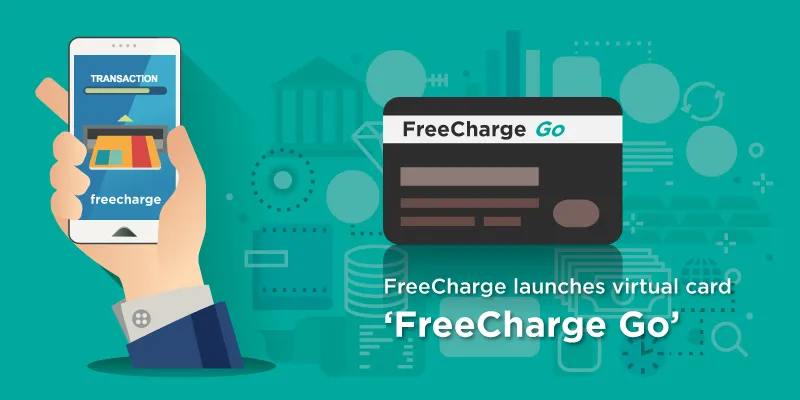Snapdeal’s FreeCharge now allows you to pay on Flipkart, Amazon and others
In an effort to be ‘ubiquitous’, mobile commerce platform FreeCharge has introduced a new virtual card called ‘FreeCharge Go’, which will be accepted across all online merchants in India.
The virtual card powered by MasterCard is launched in association with Yes Bank which the company claims to be activated in less than 10 seconds of registration. Through introduction of this technology, Freecharge seems to be taking lead against competitors like Mobikwik and Paytm.

On the occasion, Kunal Shah, Co-Founder and CEO, FreeCharge said
Being a company of 2016, it is not humanly possible to partner with all 20,000 odd merchants out there. So now we don’t need any more tying up or partnerships. In one stroke we have created an infrastructure which allows you to pay across any online merchant in India.
According to Govind Rajan, COO, FreeCharge, the company is trying to create a habit commerce company rather than a mobile wallet. Habit Commerce with a use case for the mode of payment every day and is accepted anywhere. He said,
Cash is the real competitor, where you need to be as good as cash. True Nirvana would mean to us where you can pay without even opening our app. It should be that seamless, that’s the aim.
The card can also be accessed by desktop users since the company doesn’t want to be the one making this choice for users. The maximum transaction value would be INR 10,000 per month.
Justifying the usage of the virtual card to the consumer (against their normal debit or credit card), Govind explains,
It allows consumers to avail their cashbacks across merchants and also makes a customer comfortable who is apprehensive towards sharing his main debit or credit card details.
If for customers it’s ubiquity, for merchants this will translate into transactions. There are 15 million saved cards(of consumers) between Snapdeal and Freecharge. According to Govind, the number of active users might be higher. FreeCharge also has a transactional value of Rs 2000 crore with a database of 20 million verified addresses on the platform.
Kunal says
It’s similar to maybe a Facebook login, where during the transaction merchant can ask the customer if they’d like them to take the address registered on FreeCharge.
How does it Work?
On the security front, FreeCharge is using PCI and DSS compliant technology. After activating the card, FreeCharge users will be able to see a 16 digit Mastercard number with a CVV. The details will only be visible or accessible by entering an MPIN every time the customer has to view the card details.
The mobile online wallet company also introduced offline payments a few weeks ago in partnerships with Westlife Development Ltd, owner of the Master Franchisee of McDonald’s west and south India, and Shopper’s Stop. The customers paying offline need not have to give their pin but rather a changing OTP which is available at all times with or without network on the app.
The firm is looking at more partnerships with the offline merchants in the coming months.
YourStory Take
This might be a stepping stone for Freecharge, but the company still needs to answer as to what is new in store for the customers. On creating a ‘FreeCharge Go’ card, you’d still have to register and save your Go card details for the first time with other merchants.
This goes contrary to the company’s statement of making the transaction or payment process seamless and invisible.
But this technology also opens the ambit to more customers now like college students who do not have a credit card of sorts or don’t need one. However, it works equally as a bane to people who would like to purchase bigger items like electronics, furniture etc.
The only hook for a customer to use it would be the ability now to redeem his cashback with other merchants.
The Go card is an added feature to the wallet, which still requires you to have an electronic card. But the real problem which the FinTech industry needs to solve is the inclusion of the unbanked community. Thus, it is time to see what more can FreeCharge do with the wallet and expand its opportunities through existing features.







